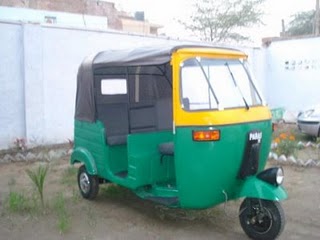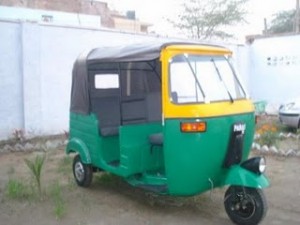Tunde, a fresh graduate and job applicant, had an interview with a pharmaceutical company, for 11am one Wednesday recently. He got up early from sleep to revise his lines and prepare answers to likely interview questions. He set out by 9am – two hours early – for a journey that should not be more than 30 minutes from his home. He did knowing issues with traffic & mass public transportation in Lagos.
Tunde hit the road with a file containing his CV and academic credentials, and was reading his Blackberry on the welded bench of a rickety bus. Traffic was flowing, and he paid less attention to distractions – from other passengers, noise from without and movement of the bus. He got to the bus stop, used a foot bridge and hopped on another bus. He spent a total of 30 minutes from his house to the next bus.
He continued with his style, paid the fare-collector, and advanced towards his destination. Tunde had planned to find a place around the company to hang around upon getting there, since there was the possibility of his not being allowed into the building at least until 30 minutes before his appointment. However, he met a surprise; the hitherto flowing traffic gradually slowed and stopped, putting Tunde and other passengers under heat from the scorching sun.
Tunde shrugged off his suit jacket, placed it on his thigh and hoped for traffic flow. Then, he noticed motorcycle-taxis moving between the spaces left between vehicle lanes on the road. Tunde still had time, so he stayed back and read. It was not until he had spent 45 minutes about the same spot that he realized that he might be late. He alighted from the bus, placed his jacket over his shoulder, hitched up his pants and joined the sidewalk of the highway.
He flagged motorcycle-taxis, but they were too expensive due to the high demand by other pedestrians. He walked faster and started sweating, but he continued to try the empty ones he saw. He finally got one, but had to share with another guy, making them three on the motorcycle, and reducing the fare for both men.
He got to a junction, and found a crowd; they were waiting for tuk-tuks. He got off the motorcycle, paid, and waited with them. He ensured he was alert enough, to board the next one. He tried, but didn’t, then was lucky with the one after. Tunde was relieved and entered the venue 5 minutes to the interview.
This story is similar to what several people – headed for destinations – face, in Lagos, every day. In Nigeria, and several developing nations around the world, tuk-tuks, or three-wheelers, or Samosa, or tempo, or trishaw, or auto rickshaw, or autorick, or bajaj, or rick, or tricycle, or mototaxi, or baby taxi or lapa, or keke, or maruwa, are popular for mass public transportation. They are useful for people to get around, maneuvering through traffic, and corners where four-wheelers cannot swerve.
They are everywhere in Lagos, and became more popular after the government crackdown on motorcycle-taxis, or okada in 2012. Tuk-tuks carry four passengers, three in the rear and one in front with the rider. It consists of a cabin in front for the driver and open frame and metal body with three wheels.
Commercial riders for tuk-tuks are mostly uneducated, benefiting from loans from Microfinance Banks or programs from borough governments. They can be rudderless on the road, obstructing traffic and moving without fear of harm. People love them, young people and those in the middle class board tuk-tuks to get around. The elderly and low income earners find them suitable more than motorcycles.
Commercial tuk-tuks operations in Lagos are not exactly regulated, but they are painted green or yellow and noticeable around the state. Tuk-tuks have replaced cabs for many, with parents conveying children to school and back – using tuk-tuks as a hired service. Tuk-tuks are used for awareness for certain programmes and also have lesser reports of aiding crime compared to okadas. Tuk-tuks are common for short distances and novel routes where there are no connections for buses.
Tunde later found out that a tanker broke down, causing the congestion on his way to the interview. He returned home in the same direction, but this time, in short distance rides – in tuk-tuks through roads within streets.



